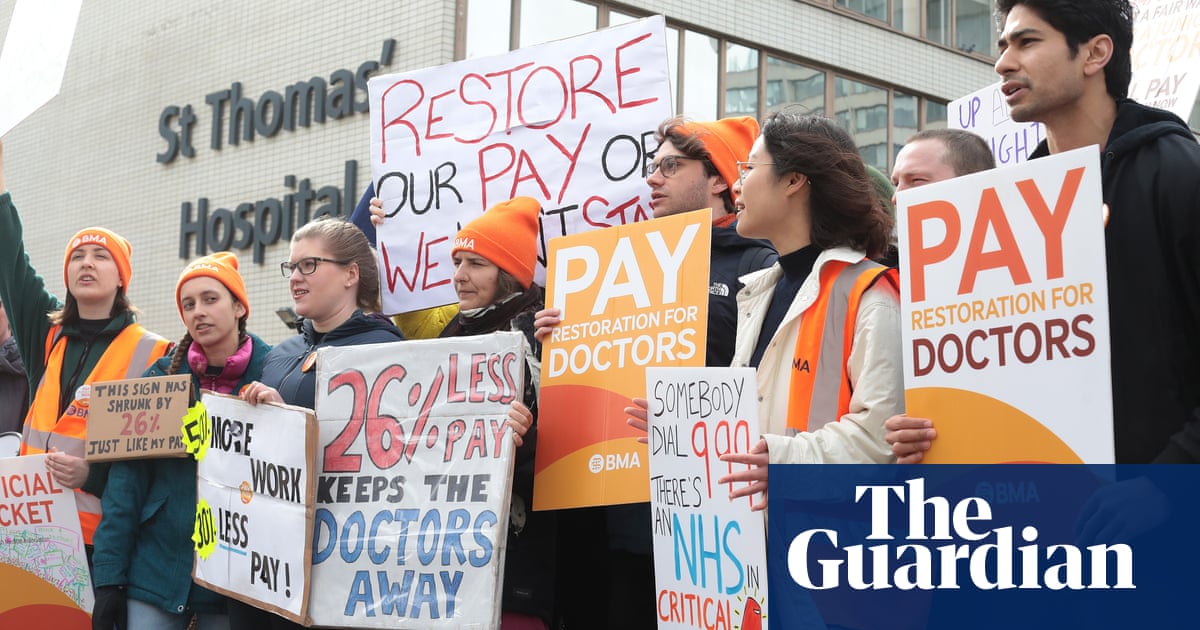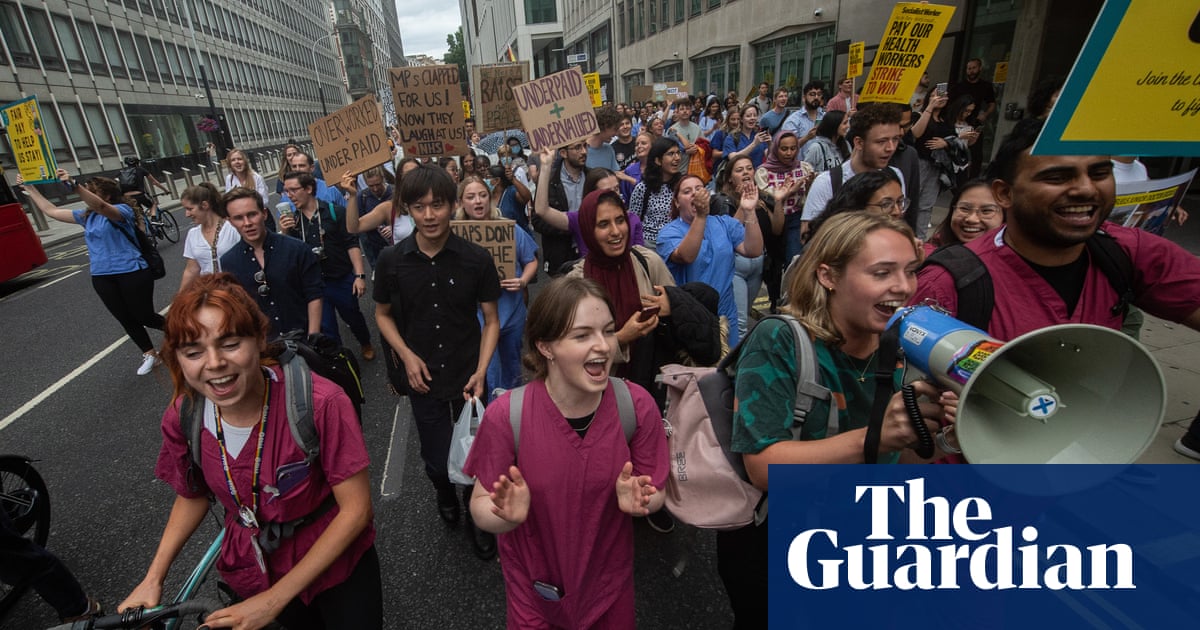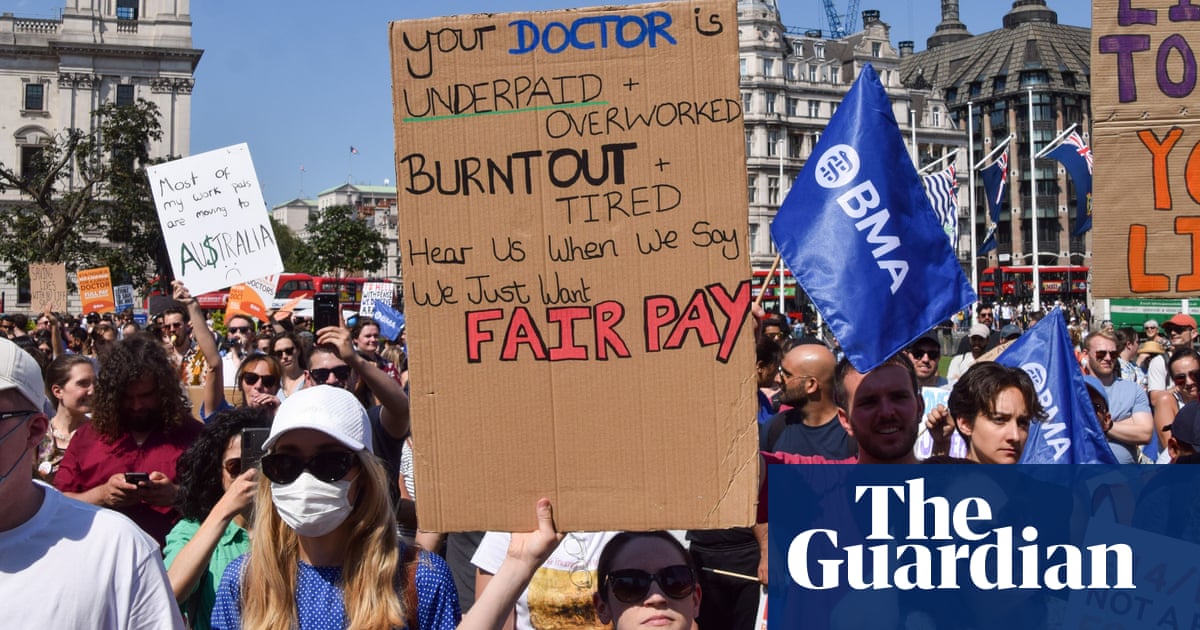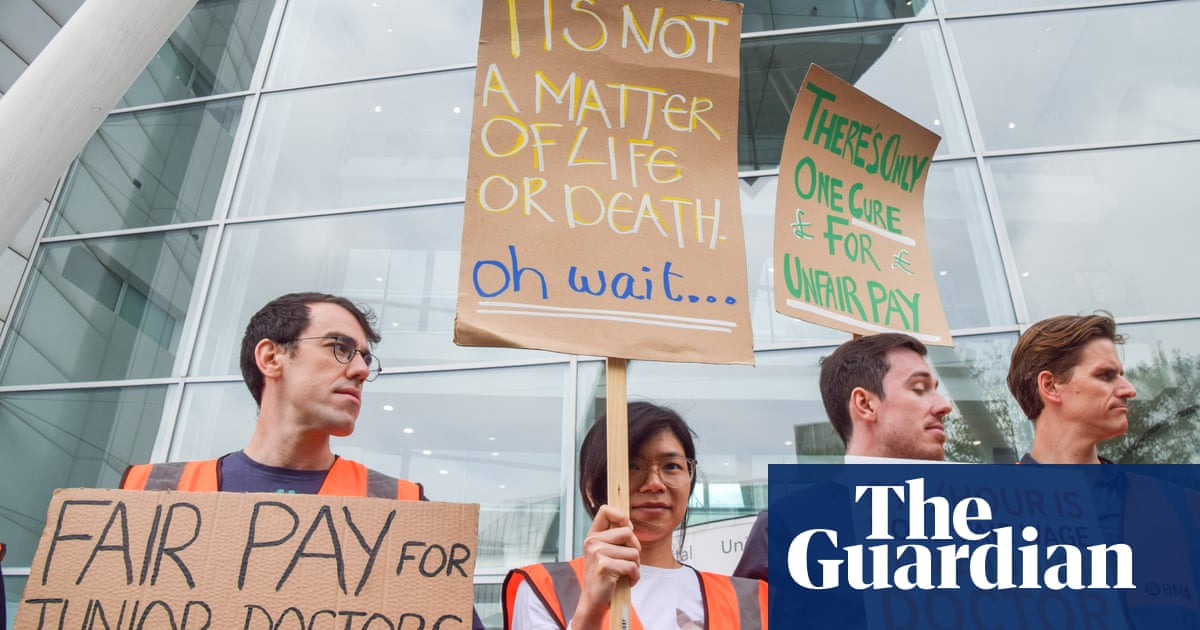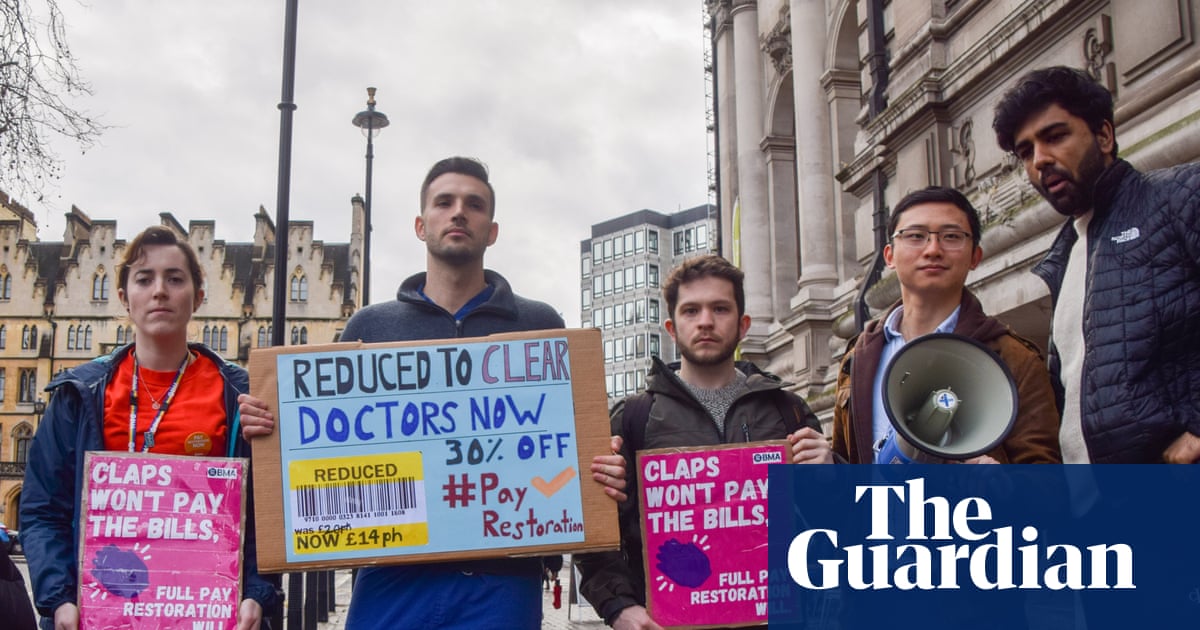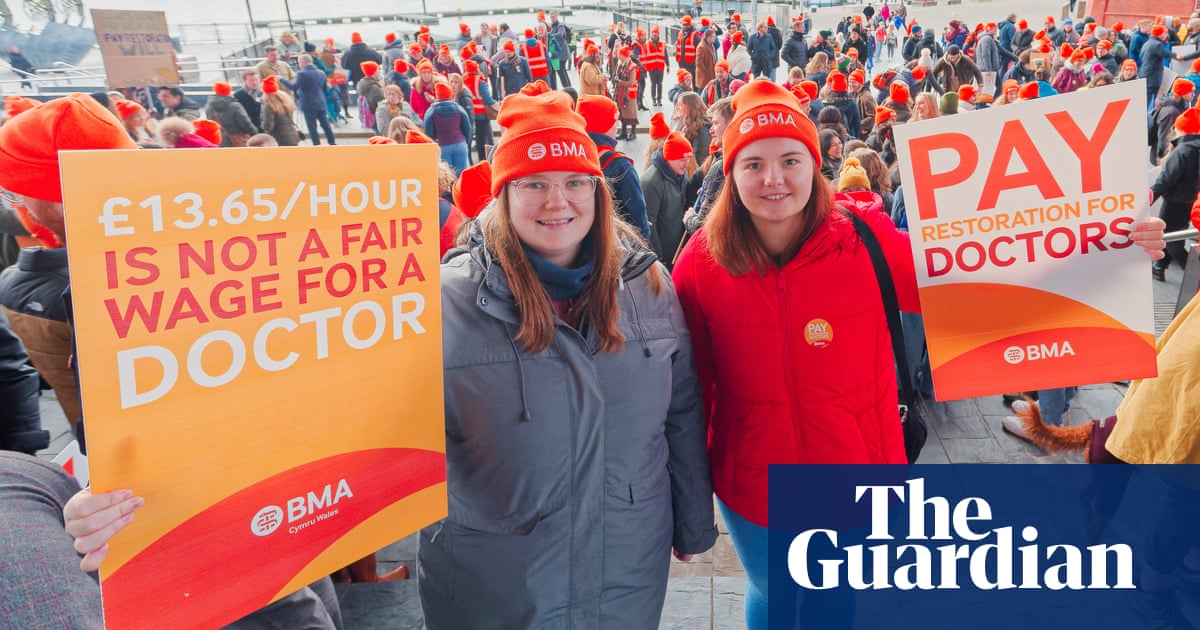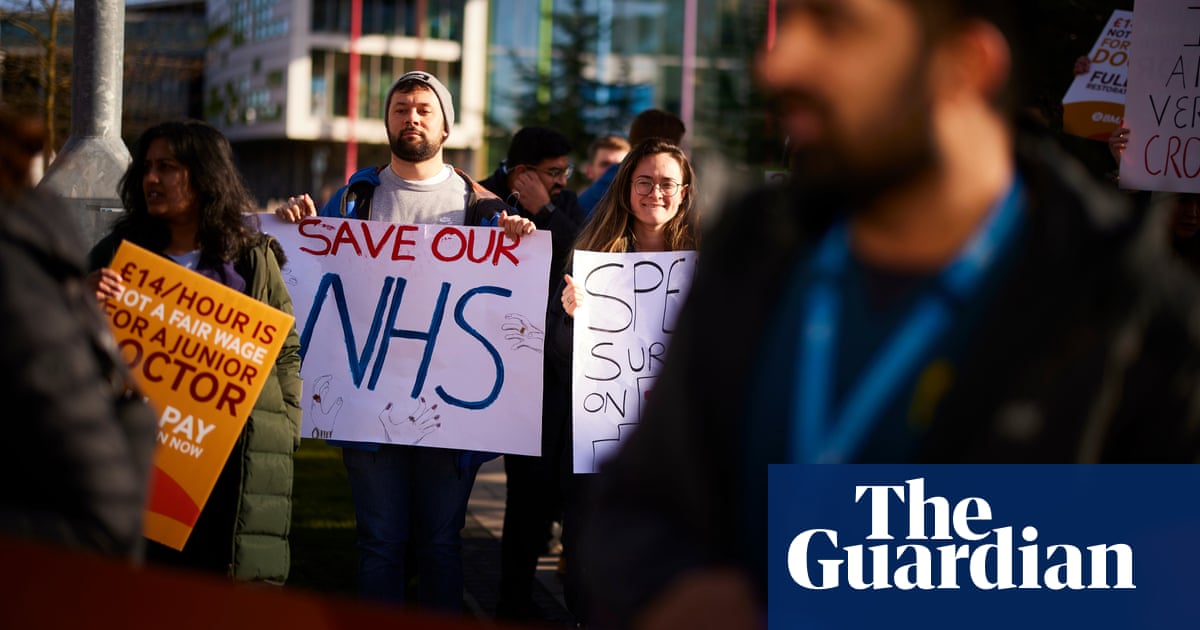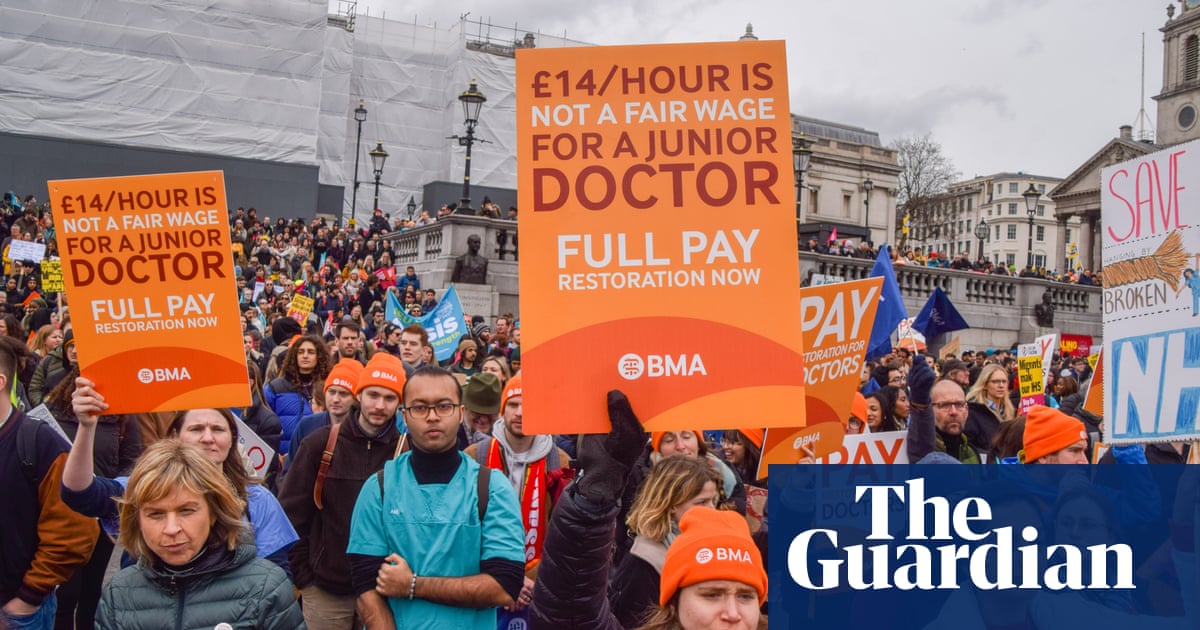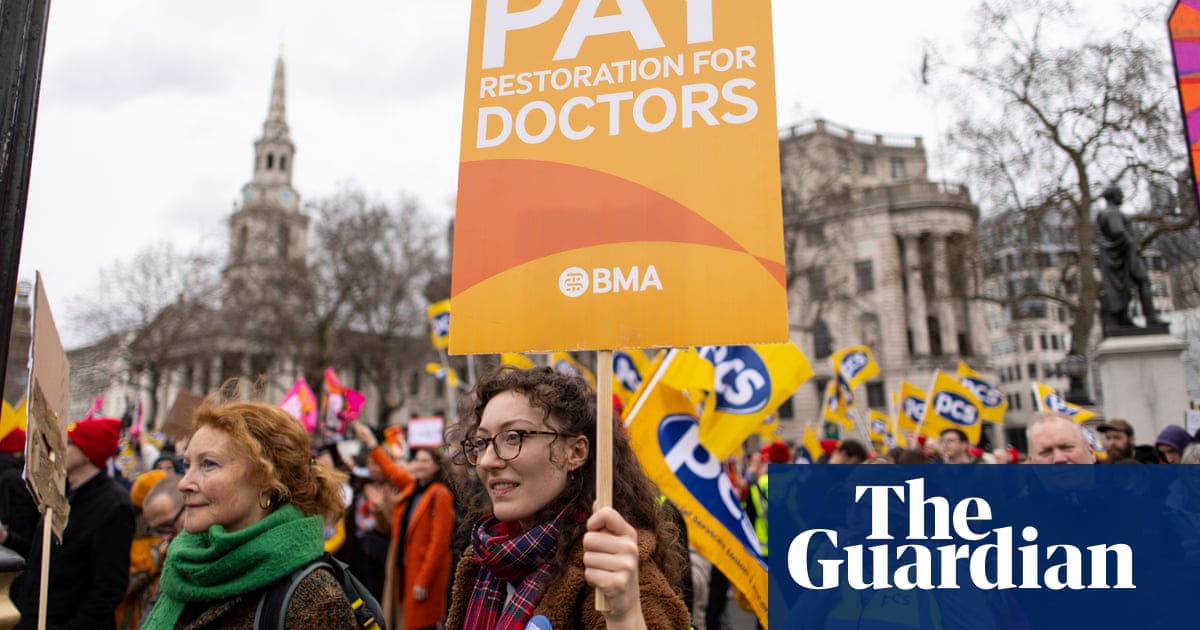
Junior doctors have intensified their pay dispute with the government by calling a four-day strike that NHS bosses fear will force them to cancel up to 250,000 appointments.
The British Medical Association blamed ministers for the strike and said they had not put forward “any credible offer” in response to its claim of a 35% pay rise for trainee doctors in England.
The 96-hour stoppage will start just after the Easter bank holiday weekend and run from 06.59 on Tuesday 11 April to 06.59 on Saturday 15 April and affect every NHS hospital in England.
Hospital officials said the unprecedented duration of the strike would imperil patients’ safety and urged junior doctors to “reflect” on the wisdom of their planned action.
“The government has dragged its feet at every opportunity. It has not made any credible offer and is refusing to accept that there is any case for pay restoration, describing our central ask as ‘unrealistic’ and ‘unaffordable’”, said Dr Robert Laurenson and Dr Vivek Trevedi, the co-chairs of the BMA’s junior doctors committee.
The main doctors’ union called the strike after talks with Steve Barclay, the health secretary, broke down without achieving any progress.
There is a growing acrimony surrounding the dispute, with both sides accusing the other of being unreasonable. The BMA is seeking a 35% pay uplift for junior doctors, whose salaries have fallen in value in real terms by 26% since 2008/09 – a demand Barclay says is “unreasonable”.
In a reference to the failed talks, Laurenson and Trevedi added: “Even yesterday they continued to add new unacceptable preconditions to talks instead of getting on and trying to find a resolution.
“The situation is entirely of the government’s own making. We are not going to stop until we are paid what we are worth.”
Dr Naru Narayanan, the president of the Hospital Consultants and Specialists Association, the other medical trade union, also blamed minsters for the 96-hour stoppage, which HCSA members will join in too. He said ministers had “seen fit to ignore the overwhelming support among junior doctors for this dispute driven by year after year of real-terms pay cuts”.
Thousands of junior doctors staged a three-day strike on 6-8 March, which led to 175,000 outpatient appointments and operations being rescheduled. The Department of Health and Social Care (DHSC) said that “further strikes will risk patient safety and cause further disruption”.
The NHS Confederation, which represents health service trusts, said it shared that fear. “Sadly, it is inevitable that this will impact on patient safety and dignity. Further industrial action will have a significant impact on patient care”, said Matthew Taylor, its chief executive.
The strike is “a blow” to the NHS’s efforts to reduce the 7.2m-strong backlog of people waiting for hospital treatment and “a huge setback” to hopes that the dispute would be resolved, he added.
Hospitals will find it hard to get consultants (senior doctors) to cover their junior colleagues’ shifts during the fresh stoppage on 11-15 April because they are owed leave from doing so on 6-8 March.
“Complicating matters further is the fact that leaders are unlikely to be able to call again on consultants in the same way to fill in rota gaps, due to many having accumulated leave from providing cover during the first strikes. This poses a challenge to services already stretched by having too few staff, so another walkout poses a real risk to patient safety,” Taylor added.
Saffron Cordery, the deputy chief executive of hospitals group NHS Providers, said the timing of the four-day strike was unhelpful for the NHS because it would follow directly on from the Easter weekend, when skeleton bank holiday staffing meant that “demand will have piled up” anyway.
“This threatens the biggest disruption from NHS walkouts so far,” she added. Cordery urged the unions and ministers to “urgently re-enter talks in good faith”.
A DHSC spokesperson said: “The health and social care secretary met the BMA’s junior doctors committee yesterday in the hope of beginning constructive talks to resolve the current dispute.
“The BMA placed a pre-condition on these talks of a 35% pay rise. That is unreasonable.”
They added: “Our door remains open to constructive conversations, as we have had with other health unions, to find a realistic way forward which balances rewarding junior doctors for their hard work while being fair to the taxpayer.”




